THE TOUCAN INTERVIEW
Mark Waid: A Banner year Part One
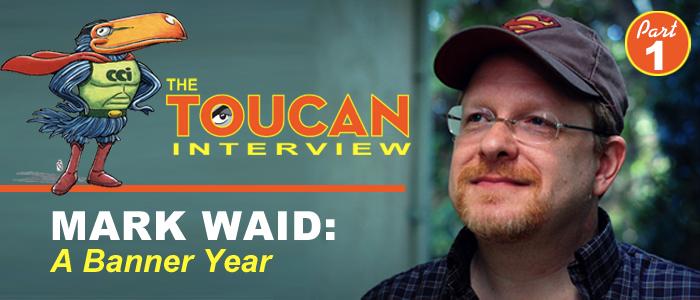
2012 was a “Banner Year” for Mark Waid in more ways than one. The writer celebrated his 25th year working in comics (as writer, associate editor, editor, editor-in-chief, colorist, and probably a few other job titles we’re forgetting). In addition to his continuing work on fan-favorite Daredevil at Marvel, he launched The Indestructible Hulk (“Banner Year” . . . get it?) at that company, Steed and Mrs. Peel at BOOM!, The Rocketeer: Cargo of Doom at IDW, and his own online comics site, Thrillbent.com, which features his and other creators’ work. As if that wasn’t enough, this summer Waid won three Eisner Awards (surprisingly, the first three of his career) for Best Writer, Best Continuing Series (Daredevil), and Best Single Issue (Daredevil #7), plus Comic-Con’s prestigious Inkpot Award. We sat down with Mark in late September to discuss his career with him, in this interview, the first in a series with Comic-Con, WonderCon Anaheim, and APE special guests for our new Toucan blog. (As always, click on the photos and art for a closer look!)
Toucan: You’re currently writing Daredevil for Marvel, and Indestructible Hulk just launched late last month. The Rocketeer: Cargo of Doom miniseries from IDW has just finished up. You’re also doing Steed and Mrs. Peel for BOOM!. On the digital comics front you have Insufferable ongoing at Thrillbent.com, your own website, and at Comic-Con 2012 you announced you’re doing a new graphic novel with artist Shane Davis for Legendary Comics. Did I miss anything?
Mark: No that seems like a good Monday.
Toucan: So my first question is, when do you sleep and eat?
Mark: You know what, I have a very patient family and very patient friends who understand that there are many times that I’m just going to have to hole up in my office for hours and hours and hours at a time. It’s a good problem to have. I can never complain about having too much work. I hope that the work itself doesn’t suffer with the amount of over-committing and stuff, but the thing is—to some degree—it all uses different muscles. I mean Hulk, Daredevil, that’s playing in somebody else’s sandbox, same with Steed and Mrs. Peel really. And those are fun stories to tell, but to some degree I’ve been with those characters since I was a kid, so they’ve always been percolating in the back of my mind. With the Thrillbent stuff obviously, it’s a lot more having to be out of my own imagination. In that sense it’s a lot more work, but at the same time I’m being able to invent new ways of telling stories along with Peter Krause and Nolan Woodard and Troy Petrie, the creative team on the book, and that energizes me.
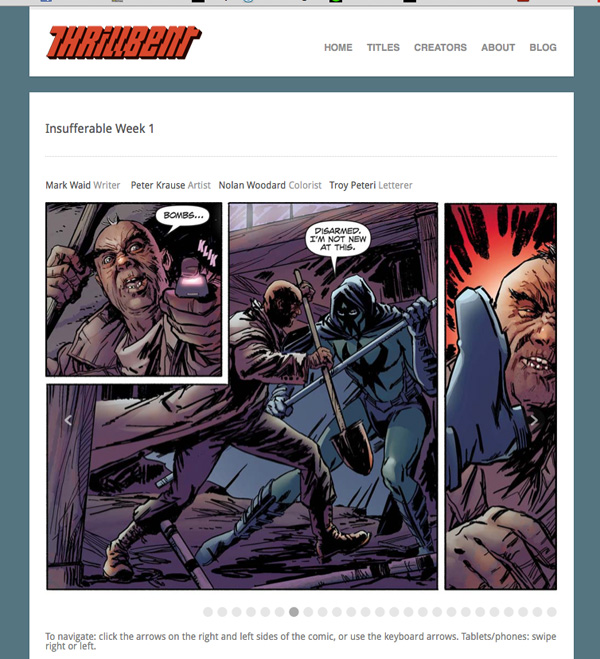
I’ll give you an example. Here’s the thing about weekly webcomics that I just didn’t take into account. I know so well after 20 years in the business the panic that comes with the deadline for every script. I know it well. It’s a monthly ritual for every book. I’m never hideously late, but I’m always pushing it to the last second. And so I know about that creeping dread every month when I’m doing a monthly series. This is weekly, so I have that every week. Last night at about 11:30—when honestly, I’d been hit with a sinus infection, I’d been up since 7:00, I literally had not left the house yesterday, not even to go get mail, nothing and I’d been behind the keyboard and I was exhausted—but Pete Kraus needed the next chapter for Insufferable for this morning so he could get moving. And I dragged myself to the keyboard. But I got to tell you, the moment I started coming up with “Oh well, here’s something we haven’t done in digital before,” or “Oh well, here’s a way of telling that story,” or here’s something that I can interject personally about my own experience into this thing, I got my energy back. Time flew and I looked up and it was about 1:00, 1:30 and I finished the chapter and I got a good night’s sleep.
Toucan: So that kind of dovetails into my next question, which is obviously to juggle the kind of workload you have, you have to have some kind of discipline. What do you do to get working each day?
Mark: There is no discipline. You would think there’s discipline. No, no, no it’s not discipline, it’s just sort of like you reach a point where you’ve just got to do something. I wish that I were a 9-to-5 clock guy. I wish I were a Geoff Johns or a Chuck Dixon sometimes, who could just come in, and obviously they’re great writers, but they’re so disciplined. I mean Geoff in particular, will literally go into a studio at 9:00, sit at the keyboard, start writing, take a lunch break, sit back down, write, be over with it about 5:00, 6:00, and then go surf the Internet or do whatever the rest of us do all the rest of the day. I admire that discipline, but on the other hand if I really wanted that kind of a job, I’d be working in insurance. I like the flexibility. There’s no rhyme or reason to it. It’s just some days are 20-page days and some days are a lot of searching online for old episodes of What’s My Line? or something. I wish I knew. I think that you could really do some interesting studies if you were able to get ahold of the browser histories of most comics writers and see what their days are like, because you just kind of pinball back and forth between going online to look up a synonym for some word that you’re in the middle of writing a script for, and then the next thing you know you’re watching old Flash Gordon cartoons.
Toucan: Because somehow that came up in your search for synonyms.
Mark: Exactly. I make light of it, but I have come to accept grudgingly that this is just part of the process for me. Everybody has a different way of working, and for me it just seems to be procrastinate, procrastinate, procrastinate, procrastinate and then leap into the frame and get it all done. I’ve talked about this many a time with my other writer friends. If I could bottle the feeling I get when I catch a wave—you know, when I sit there at the keyboard and I’ve suddenly got an idea and I’m all excited and at that moment I can’t stop writing—I could have the easiest job in the world. But for some reason, and this is true for all of us, we forget what that feeling is every time we sit down at the keyboard.
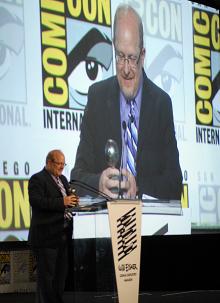
Eisner Awards
Toucan: In August you marked your 25th anniversary as a comics professional. After all that time, what’s your most memorable moment as a comics pro?
Mark: Wow, that’s a good question. Not necessarily what’s my most memorable story or my most memorable as a comics pro, very good question because there’s so many and I’ve been very lucky. You know what, help me narrow it down. Let’s play word association. Give me something. Give me anything like conventions, store signings, I don’t know.
Toucan: How about seeing your name in print for the first time as a writer?
Mark: That rocked. Probably my most memorable moment is the moment of being a fan reporter doing stuff for Amazing Heroes magazine. And doing conventions, going back and forth as a guest liaison and getting to know artists and writers. And of course, all I ever wanted to do is write comics at that point in my life.
That’s not true, I wanted to be an editor, but I wanted to be involved in comics. I wanted to begin as a writer and see if there was anything there, and in 1984 I went to see Julie Schwartz and sat down with him in his office. Very nervous little 22-year-old kid and I came in with a pitch for an 8-page Superman story. This is back in the year or so before John Byrne took over the book, and the edict from on high, the edict from Jenette Kahn and Paul Levitz to Julie Schwartz, was we’ve got some big changes coming up, and we’re not sure when they’re going to fall. In the meantime Superman stuff does beautifully internationally for us, but we need it to be a little more kid friendly than the rest of the DC line. Not obviously sell comics for kids, not the Johnny DC line, but just make sure it’s kid friendly and fairly self-enclosed and in 8-page increments. At that point the standard in the industry was 22 pages and it had been for a while, but if you go back and look, all of Julie’s Superman and Action Comics books were 24 pages, because that’s what foreign marketers wanted. They wanted 8, 16, 24 [pages], they wanted things they could package into 48-page graphic albums. So with that in mind, Julie was buying a bunch of 8-page stories from anybody who showed any promise whatsoever, and I came in and pitched my story and he bought it right there on the spot, and I was over the moon. I mean, that’s still probably the greatest day of my professional life.
Toucan: What was the story?
Mark: It was a story called “The Puzzle of the Purloined Fortress.” Here’s the thing you got to give me credit for, the fact that I was writing for my audience. I knew what Julie liked. Julie liked stories with a strong first-page hook. He liked stories with a gimmick. He liked stories with a twist ending and with that bombastic alliterative title. So I pitched him a story in which Superman arrives at the Fortress of Solitude and opens the door to find that the place has been cleaned out and burgled. So it’s sort of a locked-room mystery. Who could have stolen the contents of the Fortress of Solitude?
Toucan: Would it be giving away if I asked who did it?
Mark: Trust me, it’s not worth going into. Next question. Next question.
Toucan: So if the Mark Waid of today could go back and tell the Mark Waid of 1987 something about working in the comics industry, what would it be?
Mark: Get it in writing, that’s one. Don’t overextend—plan your career better. My one regret is I wish I’d done a slightly better job of a certain narrowcasting, sort of picking and choosing my assignments with a little more care. Not that there’s a whole bunch. I mean everybody’s résumé has some crap on it. It’s just the way it is. Nobody passes that. Even Alan Moore wrote those horrible Vigilante stories.
Especially in the wake of Kingdom Come, I ended up being courted by everybody in the world, which was sweet and it’s nice to be the pretty girl at the party and I probably took on a little too much work . . . I think someone like Neil Gaiman had the right idea. Neil could have written two or three different DC books at the time he was writing Sandman, but he kept himself to one book and he did it smart. He just did one book, he did it to the best of his abilities, he focused all of his energy there, and that thing will be in print forever. Conversely, I wrote a ton of Green Lantern short stories for 80-Page Giants that nobody remembers. Also, Neil is insanely talented and I’m a guy at a keyboard, but that’s neither here nor there.
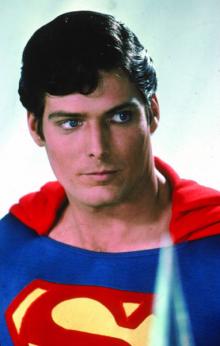
Toucan: So of all the characters over the last 25 years that you’ve written, who is your favo-
Mark: Superman. You didn’t even have to finish the question.
Toucan: Why Superman?
Mark: Well he’s not the character that drew me in, because Batman was the character that drew me in when I was 4 and I was watching Adam West cavort on the television. It’s Superman because I liked Superman when I was a teenager and I liked the mythos. I liked all the continuity and I liked the world building around Superman and so forth, but my soul didn’t belong to Superman yet. And then on January 26, 1979—probably the most important day of my life, certainly one of the top two or three—I went to see Superman, the movie. I walked into that theater and I was a kid with a troubled home life, I was not sure what I wanted out of life, I was depressed. I mean not blue, more like a teenager; I was really starting to deal with some depression issues and no real strong parental figures, and I wanted to get out. I don’t want to bring the conversation down, but let’s just say it was a very, very, very dark period in my life, probably the darkest. And I went into that theater feeling like nobody in the world cared about who I was or what I wanted or what my place in the world might be and nobody gave a crap. And I came out of that movie, after seeing it twice in a row, just elevated because—and it took me a long time to put two and two together, probably another 20 years to figure out the pieces of this puzzle—what really happened in that movie was that Superman is a character, especially as embodied by Christopher Reeve, who cares about everybody. It doesn’t matter whether you’re black or white or rich or poor or American or Indian or whatever, male or female. He cares about everybody, and that compassion radiated out and somehow through that performance and through that movie and through that moment in time, it reached me in a way that nothing else ever had and nothing else has since. And from that moment on I just knew that no matter what the rest of my life was going to be and what it was going to revolve around, it had to involve Superman. It sounds almost saccharin to say it this way, but as improbable as it sounded when I was a kid, Superman really did save my life, and I mean that in the most fundamental way and that’s an allegiance that will never go away.
So it’s led me down a pretty good path. It could have been much worse. I could have gone to see The Good, The Bad and The Ugly, and it could have been Clint Eastwood who had influenced me and I devoted my life to Clint Eastwood and I’d be defending a guy who’s yelling at an empty chair on the stage.
Toucan: Or you could be wearing a serapé right now.
Mark: Exactly. I could be walking around with a piece of metal hidden underneath it to shield me from bullets, smoking a cheroot. There are shortcomings and pitfalls to imprinting yourself on a comic book character like that that become more obvious as you get older. The obvious upsides to saying, “Well, I want to be like Superman” are obviously that Superman is a great role model for kids in terms of fair play, in terms of compassion, in terms of ethics and morals, but there’s a dark side to that, too, and I can’t pretend that that doesn’t inveigle its way into your consciousness as well, which is that Superman is also about lying to your friends about who you really are. Superman is also about putting others before yourself at all costs and in doing so not always looking out for yourself, which in the real world is something you kind of have to do. Superman is about black and white and we live in a world that is not black and white. So as I got into my 30s and 40s, I sort of realized there are some of my own character flaws or some of my own personal shortcomings. I’m not going to put them at Superman’s feet, but I’m just saying that’s how I interpreted what I read as a kid, but it’s interesting how it’s on a subliminal level and a very deep-seated level when I was impressionable and young how some of that stuff sort of took hold. And if you look at the influence of comics and its ethics and morals and its messages on me as a kid, if you look at that as a big lush garden full of beauty, of ethics and morals and doing the right thing and being truthful and so forth, there’s some weeds in the garden. I’ve probably stretched the analogy as far as I can without it collapsing under its own weight, but you kind of get it, right?
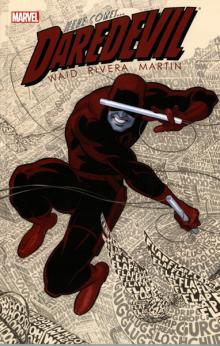
Toucan: I get it, and it also kind of relates to Daredevil, because he’s probably one of the most ethical characters in comics right now, at least the way you’re writing him. For a while there he was written way too dark and conflicted and kind of an anti-hero, but now you’ve brought positivity back to him and he’s very moral and very ethical.
Mark: I think he has to be, and again I don’t speak for everybody who ever wrote or drew Daredevil and I would be foolish to, because it’s a murderers’ row of truly great talent, but from my point of view Matt had no choice but to be moral and ethical because it’s so deeply engrained in his psyche . . . he has to believe. And when I say he has to believe I’m not saying I think he must believe this and this because I want it to happen. I’m saying I think he has no choice but to believe that good can triumph and light can come, that might comes from right. That things can be put right and that the world can be made fair and there can be justice, because otherwise there is just no reason in the world why a 10-year-old boy who helped a man across the street in traffic could have been blinded in a horrible accident and had all this stuff taken away from him. In other words, if you’re Matt Murdock, you have to believe that it’s not that there’s a reason for it, not that there’s some sort of a cosmic destiny behind the accident that happened, but just on a more fundamental level. You got to believe that good can come out of that stuff. Does that make any sense?
Toucan: Yeah, definitely.
Mark: I’m not sure I’ve hit exactly the nail on the head, but these are good questions you’re asking me because you’re making me articulate things I have not yet articulated in 800,000 interviews about Daredevil.
Toucan: And you’re right in that Daredevil over the years has had a murderer’s row of creators on it, but he’s also a character that every once in a while has to be jump started again.
Mark: Yeah.
Toucan: What attracted you to the character that made you want to take over the book at this point in time?
Mark: A short story. A pro short story actually that was written in the late ’70s and it was . . . did you ever see those Marvel novels of the late ’70s, early ’80s?
Toucan: Ted White wrote a Captain America one I think, but that was maybe in the ‘60s.
Mark: Yeah, and Otto Binder wrote an Avengers one and that was the ’60s. In the ’70s it was Len Wein and Marv Wolfman and Ron Goulart and guys like that doing Hulk and Fantastic Four and Spider-Man novels. But there was a short story collection, Marvel Superheroes, and I think Chris Clairemont wrote one and I know Jim Shooter wrote one, and in there was a short story about Daredevil written by Marty Pasko—he’s one of my favorite writers—under a pen name, it escapes me what it is now, I forget. I read that short story when I was a kid, and it starts with Matt waking up in the morning, it’s that simple. In prose you don’t get the cool visual cues that you get from Daredevil and his radar sense, you have to rely purely on prose, and Marty did a great job of in a few pages outlining what your life is like if you have radar sense and you have enhanced senses and you have to live in that world. And the way he focused on Matt’s powers, the way he defined them for me in prose, made me really think about them, and I’ve always loved that set of superpowers. I’ve always been fascinated by what the world was like through Matt Murdock’s enhanced senses. And so that as much as anything is what drew me to the book. I mean I had always been a fan, and honestly the other thing that drew me to the book was Marvel was great. I said, “Look I accept the assignment but I can’t do what Frank did. I can’t do stories in the style of Frank Miller, because that’s just not what I do well. What I would like to do is what Frank did, which is do my own thing. Just go and sort of break rank with the tone of the book that had been established since Frank got there and try to find some new voice. I think it was a horrific gamble, I really do, because there’s every chance in the world that fans could have just strung me up and said well this isn’t Bendis, go to hell. You know, where’s Hell’s Kitchen, where’s Dark Daredevil, where’s the blood? But instead we just—in a gargantuan way thanks to Marcos Martin and to Pablo Rivera, the artists—we hit the right place at the right time, I don’t know, but man we struck gold.
Toucan: Well, both in the writing and the art, a lot of readers think you’ve made Daredevil fun again.
Mark: You know the reason he hasn’t been fun is because fun comics don’t sell. Thanks . . . you just killed the book, thanks.
Toucan: I don’t think that book is in any danger of being killed right now. When you look back, the character is almost 50 years old. It’ll be 50 in 2014. He was created to be kind of more of a wise-cracking, fun superhero like Spider-Man was at the time, not that Spider-Man, especially under Ditko, didn’t have his dark moments, but Daredevil was a lot lighter.
Mark: In some ways he was a poor man’s Spider-Man in that they were trying to emulate the same sort of soap opera, but the problem that you have with Matt Murdock was that first off, the supporting cast was much smaller. Spidey had a huge supporting cast, and Matt had Foggy and his secretary Karen and that’s it. And for some reason it’s just not as angsty and soap operay when problems happen to a successful adult attorney with money as they are when they happen to a hapless teenage kid who is struggling to make the rent. It was always a swashbuckling book, and I loved that as a kid. That’s one of the reasons the character appealed to me as a kid, but you know as well as I do fun comics . . . they close out of town. Especially in the superhero world there’s just not much room for whimsy or lightness or what have you. I don’t understand why we seemed to have escaped that curse for the time being, but I’m kind of looking at it like I’m the coyote walking off the cliff. I don’t want to look down or I’ll fall.
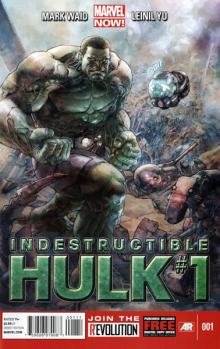
Toucan: You mentioned before that one of the things that fascinates you about the character is how he sees things, and I think especially with the art, you’re bringing a lot of that to the page. The grid work on bodies and objects, that amazing cover on the first issue and all those things in the background, everything the way he sees them, this contributes to a totally different look for this character. But this interview isn’t all about Daredevil. Let’s move on and talk about the Hulk a little bit. By the same token of you taking over this character that has been around for 50 years, what made you want to take over the Hulk?
Mark: I was in the same bind. You know they said, “Hey, do the Hulk,” and I had the same reaction I generally do when you offer me a Marvel character, which is to say I have no interest. I don’t think I can do this and then I go off and I think about it for a while and I find a little tiny toehold in it. And in this case it wasn’t just “Hey, we want you to do the Hulk,” it was, “We want you to do the Hulk and we want you to try to breathe the same life into it that you breathed into Daredevil.” Well that sounds awesome and flattering, but I’m not sure what that means, because on the face they’re two vastly different characters and setups. With Daredevil you can tell a lot of different sorts of stories and there’s a lot more room for witty badinage between the characters and irony and humor and smartness and what have you. I think the characters are smart and I like writing smart. Hulk is a force of nature who is a living engine of destruction, and my old line was I don’t understand why Bruce doesn’t just throw himself off a bridge every day. He’s the most tormented character in all of comics.
So with that in mind I said, okay, well what do we do? What do we do to re-create in some degree what we did with Daredevil? What’s the commonality? What possible thing can thematically bring these two together? And then it came to me again. Again, that idea of torment. Both Matt Murdock and Bruce Banner were horribly tormented characters. In fact, I would make the argument that Stan Lee and Jack Kirby with the Hulk created in 1962 the first and quintessential tormented superhero. Before that the only contender would have been the Thing from Fantastic Four, who predated Hulk by like half a year, but Thing wasn’t happy in his skin and Thing resented being the Thing, but still he had a sense of humor and he was still heroic and he wasn’t tormented every second of the day. Whereas Bruce Banner, from the moment he first becomes the Hulk, is just weak and put upon and looks like he wants to die every moment. And he’s on the run and he is just—again, tormented is the one word that you can’t not use when you talk about Bruce Banner. So I said, okay, well . . . my problem with that now in today’s comics is that you can’t go to a comic store and throw a stick and not hit a comic about a tormented superhero. They’re all tormented. Jeez . . . I mean look at the DC lineup. Torment is the thematic keynote of the entire new DCU. They’ve got to be people feel cursed by their powers. “My powers are a curse.” Oh, look at the horrible things that happen to me because I have superpowers. And that gets old, man. I mean, that’s a valid storytelling tool, but to make it the entire cornerstone of entire universes worth of comics . . . and it’s not just limited to DC. It’s a lot of heroes feeling like their powers are a curse, and I thought, well, Banner started that whole thing and now everybody’s like that, so maybe we should take Banner in a completely different direction. Maybe Banner doesn’t have to feel cursed by his powers any more, and that sort of led me to the breakthrough of doing what we did with Matt Murdock, which was to say look, Bruce Banner wakes up one day and has his epiphany as Matt Murdock did. Matt Murdock’s epiphany was “I’m tired of being depressed, I’m tired of digging a hole, I’m tired of being miserable all the time so I’m just not going to be miserable any more.” And there are complications that come with that obviously, but that’s kind of what we’re playing out in the series now, but with Banner—same kind of deal. Banner gets up one morning and realizes all he’s done in his lab for the last 50 Marvel years is try to stop himself from being the Hulk, and it never works. Tony Stark gets to be a heralded super-genius billionaire and Reed Richards gets Nobel Prize after Nobel Prize, but Bruce Banner’s tombstone is going to say “Hulk Smash” and that sucks. And so Banner’s whole new outlook on life is as Hulk destroys, Bruce Banner will build. I cannot get rid of the Hulk. I can minimize his impact. I can try to tap it down as best I can, but it’s going to happen, so when it happens I’ve got to be sure I’m pointed in the right direction, I’ve got to be sure I’m in places where the Hulk can be used. I’ve got to make sure that I’ve got people and the support staff around me who could point Hulk in the right direction. And in the meantime, I will spend my civilian hours no longer obsessing over this unsolvable problem with the Hulk and instead obsess over how do I sort of balance the karmic scales for all the things that Hulk has done. And in that sense it’s not a throwback story and it’s not a light Silver Age-y romp, but at the same time it is a more positive, less cynical story.
Toucan: Was it you who came up with the “Indestructible” tagline?
Mark: No, actually it was I think Mark Paniccia, the editor, but it fits beautifully in the story because it really is about Bruce Banner sort of having to realize at some point that he can’t get rid of the Hulk, no matter how hard he tries. He just can’t. He’s indestructible.
Our Toucan Interview with Mark Waid is indestructible, too, and continues in Part Two . . . click here to read it!